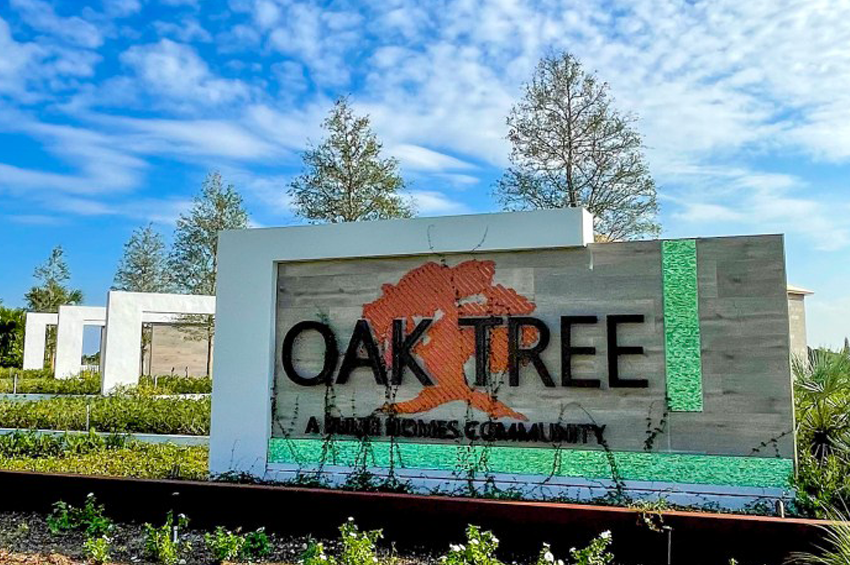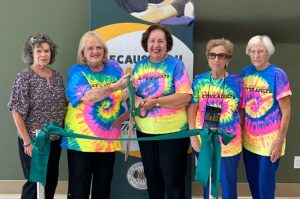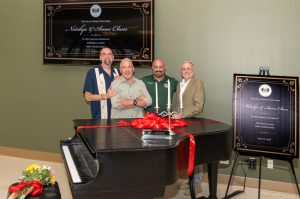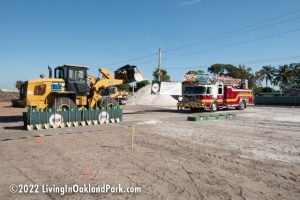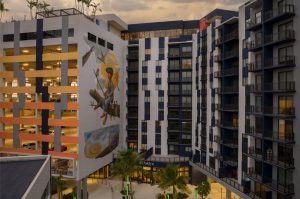Pulte Comes to Oakland Park
Pulte Homes had already developed and was developing several other new home communities in Florida before it set its sights on 139 undeveloped acres in Oakland Park. The property, formerly the Oak Tree Golf Course, had been closed to the public for nearly 10 years. The 139 acres of contiguous, virgin land presented the builder with a rare opportunity to build a master planned community that offered residents luxurious and modern new homes with a built-in resort style lifestyle. But first they needed to have their plans for Oak Tree approved by the City Commission.
Initially Pulte proposed building a little over 800 homes on the site. That number of homes was not approved. Pulte went back to the drawing board and proposed the building of 273 single family homes and 132 townhomes on the site for a total of 405 new homes. In September of 2019 the Oakland Park City Commission approved the plans. After they received approval from the City Commission Pulte began clearing and cleaning the land so it could do what it is known for, building homes.
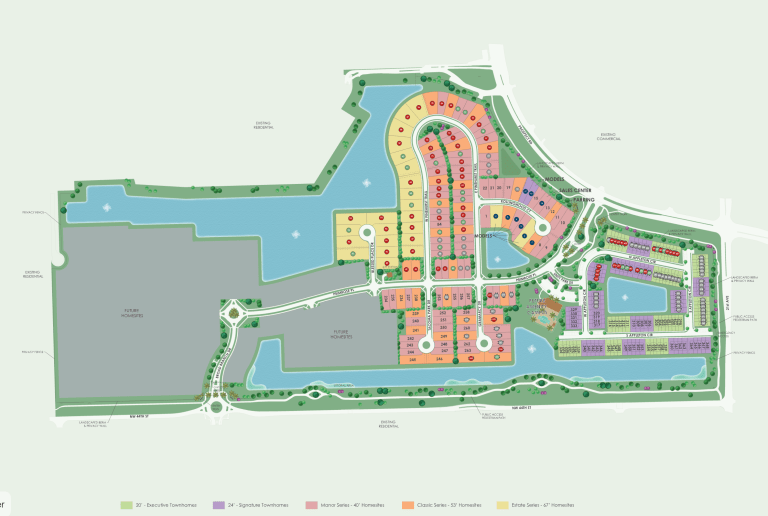
Cleaning The Land For Residential Use
In order to gain permission to develop land that was formerly a golf course, a builder – any builder – must comply with Broward County regulations for land clean up. A concern regarding the clean-up of the land and any potential hazards it could cause came up in a discussion amongst Oakland Park residents and so we decided to research it.
LivingInOaklandPark.com reached out to Pulte’s Vice President for Land Development, Patrick Gonzalez, P.E. . I asked Gonzalez about the steps taken to clear up the land and he stated the following:
At a high level what’s important for everyone to know is that the chemicals we are discussing were legal to use on golf courses and, also, that this course was closed for roughly 10 years where it wasn’t being maintained. Even after all this time without any maintenance, we have to follow a very specific process with the County to assess, remediate, test, and certify the levels of the previously used turf management chemicals now meet the requirements for residential use.
You are correct the City required confirmation of our golf course remediation approvals prior to starting homes however the process runs through Broward County Environmental Protection and Growth Management Agency who confirms we handled the golf course remediation per the requirements to convert a golf course to a residential development. This process has been successfully completed on many golf courses in Broward County and is similar to the process required on agricultural, polo field and other residential developments throughout South Florida.
In our case, we removed impacted soil from the lots and moved it to open space areas of the community and placed it beneath at least two feet of clean soil. After removing the soil from the lot areas, we tested the lots and confirmed the tests are all within the County’s requirements for residential homes. The County then reviewed and approved these testing results. The groundwater still contains contaminants remaining from the use of the maintenance chemicals so groundwater use is prohibited in the future. A restriction is recorded on the property to notify any purchasers of the groundwater use prohibition but the restriction does not practically change how the neighborhood operates. Because drinking water is provided by the City and irrigation is provided by the HOA, individual homeowners wouldn’t use groundwater even without a restriction.
We also encourage anyone interested in learning more to contact the County directly. They can provide more information on the process and more project specific details if someone would like to see them.Patrick Gonzalez
Vice President of Land Development for the Pulte Group
Broward County's Requirements
We took Gonzalez up on his suggestion and contacted the County in order to better understand the protocol for cleaning the land and making it safe for residential use. Eventually I connected with David S. Vanlandingham, P.E., Engineering Unit Supervisor at the Environmental Protection and Growth Management Department in the Environmental Engineering and Permitting Division of Broward County. We had a conference call in which he explained the County’s requirements and what Pulte had done and was doing to comply.
According to Vanlandingham, many golf courses are not as lucrative as they used to be so the owners are selling parts of it in order to generate revenue. There are no exceptions when it comes to golf courses, all of them have some sort of contamination from the legal application of pesticides. The main concern at Oak Tree are the levels of arsenic, a naturally occurring metal that was used in the pesticides when Oak Tree was a fully functioning golf course. When asked if there were other contaminants of concern at Oak Tree, Vanlandingham confirmed that no other contaminants were found on the site.
When there is a land use change, such as that of Oak Tree to residential use, contamination is of the utmost concern to the County because people will be living there. The developer or responsible party must conduct a site assessment. They hire a 3rd party contractor assess the extent of contaminants in site soils and groundwater. The amount of assessment data is predicated upon the intended final land use.
Pulte Goes Above and Beyond In Cleaning Up Oak Tree
Pulte is very familiar with the County’s requirements for converting golf courses to residential land use. They have already been through the process at their Hillcrest and Woodmont developments. They have already collected a large amount of data and based on that they are removing all of the contaminated soil from the area where the homes are being built. The contaminated soil is being placed on the perimeter berm which surrounds the development.
On top of the berm they are placing 2 feet of clean silt. Arsenic, which is not volatile, binds to the soil and remains there, unexposed. The berm is then beautified with landscaping. Where the homes are being built Pulte is removing all the contaminated soil and capping the lots with 2 feet of clean silt. This is important because developers are not required to remove all the contaminated land. Pulte is making a point of removing it all so that homeowners will not have any restrictive covenants placed on the use of the land that is their home site.
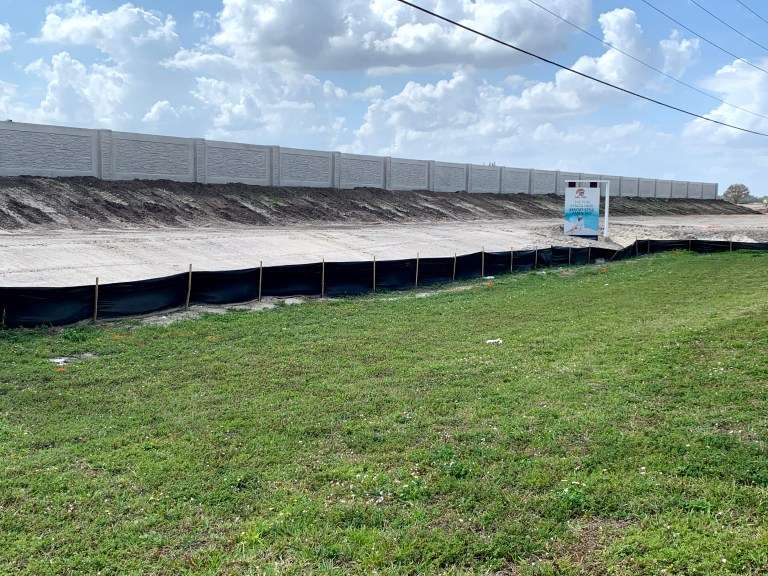
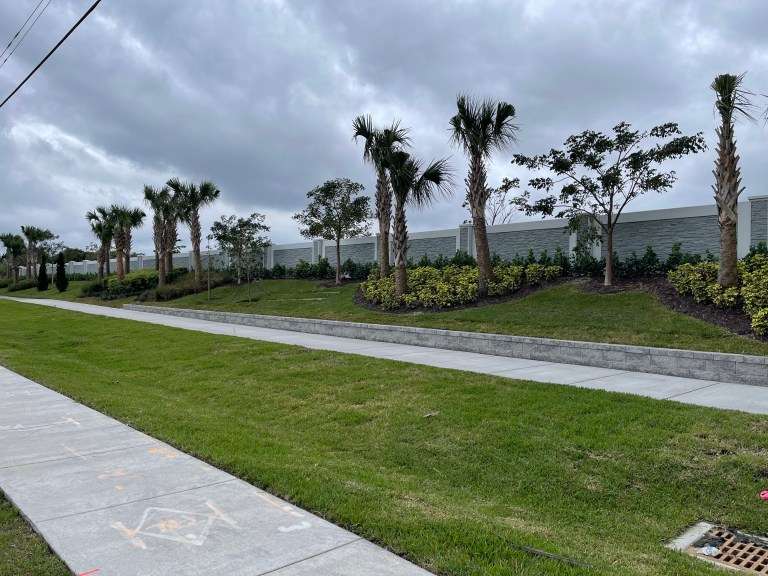
Phase 1, which is currently being built, have all been tested and are free of contamination. Phase 2 is currently undergoing remedial action. Vanlandingham affirms that it is a very transparent process and all documentation is available online.
In concluding the conversation with Vanlandingham, I asked him why future homeowners should feel safe about living at Oak Tree and this is what he shared with us:
"Pulte through their consultant has done an enormous amount of site clean-up which has been verified by the County...they have really gone over and beyond to demonstrate that every single home lot is free of contamination in the soil".
David Vanlandingham, P.E.
Engineering Unit Supervisor at the Environmental Protection and Growth Management Department
Keeping Oak Tree Safe: Declaration of Restrictive Covenants
In the community’s Declaration of Restrictive Covenants for the berm is not to be touched so as keep the contaminated soil safely packed below the surface and prevent any sort of exposure. The document also states that Oak Trees homeowners are responsible for the maintenance of the top soil cap in perpetuity.
The Declaration of Restrictive Covenants also provides for restrictions of groundwater use. Potable water will be provided by the City and the HOA will be responsible for irrigating the landscaping, so homeowners will not be exposed to any contaminated water.
Learn More About The Clean Up at Oak Tree
Click here to access the public records regarding the clean up at Oak Tree.
Want to call Oak Tree Home?
Fill out the form below and we’ll make it happen!







